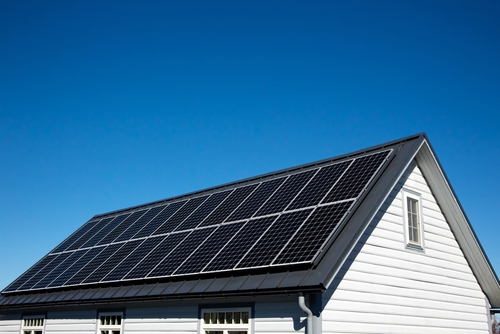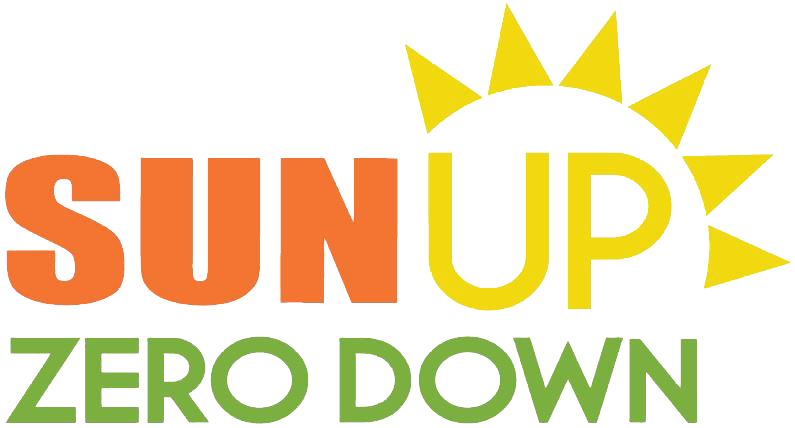Paying for Solar
If you’re thinking about adding solar panels to your home or business, financing the investment is likely a top concern. But don’t worry – we’re here to help. Here we explore the most popular financing options available that we offer including leases and solar power purchase agreements (PPAs). We also offer information about incentives and tax credits that can make solar power more affordable and help you offset the cost of installation. By the time you finish reading, you’ll have all the information you need to make solar power a smart investment for your financial and environmental future.

Cash Upfront
Cash upfront solar refers to the payment method where a property owner pays the full cost of a solar panel system upfront, without the need for financing or leasing. This means you purchase the solar panel system outright and own it from the start.
The main advantage of cash upfront solar is that it eliminates the need for monthly loan or lease payments, which can result in long-term cost savings. Additionally, homeowners who purchase a solar panel system outright may be eligible for the federal solar Investment Tax Credit (ITC), which offers a tax credit of up to 30% of the total cost of the system.
While cash upfront solar may require a large upfront investment, it can be a smart financial decision for property owners who have the capital available and want to maximize their long-term savings on energy costs. Additionally, owning a solar panel system outright gives the property owner full control over the system and the ability to customize it to their specific needs.
Solar Financing
Sun Up Zero Down offers a variety of solar financing options. Our flexible terms, ranging from 10 to 25 years, ensure a solution tailored to your needs. As proud partners with leading solar financing companies, we offer exceptional expertise and resources.
With Sun Up Zero Down, we try our best to make solar financing hassle-free. In an effort to maximize your savings, we have a special arrangement set up where we can float the entire 30% solar tax credit, so your monthly payment is based on the system’s after-tax cost right from day one.
To maintain this payment structure, simply repay the 30% tax credit to the financing company in the tax season following your install. Failure to do so will result in the tax credit being re-amortized into your monthly payments. Another great benefit of financing with Sun Up Zero Down is our commitment to your satisfaction.
Regardless of the financing company, we guarantee a minimum of 30 days of production before your first payment is due. Take control of your solar journey with Sun Up Zero Down’s user-friendly financing solutions. Start saving today!
Solar Leases
Solar leases can be a good option for homeowners who want to go solar, but can’t afford the upfront cost of purchasing a solar panel system, as well as for those who prefer not to be responsible for maintenance and repairs.
So, what is a solar lease? A solar lease is an agreement between a homeowner and a solar company, where the homeowner agrees to lease a solar panel system from the company for a fixed period of time. In exchange, the solar company installs and maintains the system at no upfront cost to the homeowner. The homeowner then makes monthly lease payments to the solar company for the use of the solar panel system. With a solar lease, the solar company retains ownership of the solar panels, and the homeowner typically has the option to purchase the system at the end of the lease term or renew the lease.
Solar Power Purchase Agreements (PPA)
A solar power purchase agreement (PPA) is a contract between a property owner and a solar company, where the solar company agrees to install, own, and maintain a solar panel system on the homeowner’s property. In exchange, the homeowner agrees to purchase the electricity generated by the solar panels at a discounted rate over a specified period of time.
Similar to a solar lease, with a solar PPA, the solar company retains ownership of the solar panel system and is responsible for any necessary repairs or maintenance—all while the property owner benefits from the energy savings.
Additionally, solar PPAs typically have no upfront costs and can provide immediate energy savings compared to traditional utility rates.
What is the difference between a solar lease and a PPA?
Solar Rebates and Incentives
There are several solar incentives available in New Jersey and Pennsylvania to help homeowners offset the cost of installing a solar panel system. Our team of solar experts will help determine if you are eligible for any rebates or incentives during the financing process.
One of the most significant incentives is the federal solar Investment Tax Credit (ITC), which offers a tax credit of 30% of the total cost of the solar panel system for homeowners and businesses that install solar panels.
In addition to the federal ITC, New Jersey and Pennsylvania offer state-specific incentives called the Solar Renewable Energy Credit (SREC) program. Under these programs, solar panel system owners earn credits for the energy their systems generate, which can then be sold to utilities to meet the state’s renewable energy requirements.
New Jersey also offers a sales tax exemption for solar panel systems, meaning that homeowners are not required to pay sales tax on the purchase of a solar panel system.
Lastly, some utility companies offer net metering programs, which allow solar panel system owners to receive credits on their utility bills for excess energy their systems generate and send back to the grid.
These incentives can significantly reduce the cost of installing a solar panel system and make solar power a more affordable option for homeowners.
Financing Partners




Get a Free Solar Estimate
Whether you’re ready to switch to solar or just want to learn more, we can help. Just let us know you’re interested and we can get the process started. At Sun Up Zero Down, we make going solar simple.
